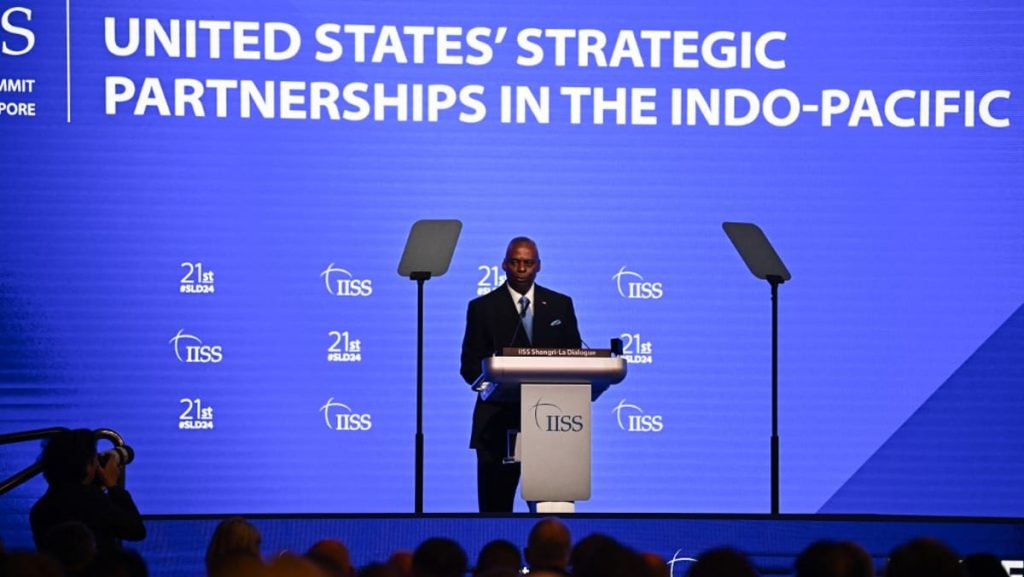Defense Secretary Austin met with his Chinese counterpart, Defense Minister Wei Fenghe, in the first face-to-face talks between the two countries’ defense chiefs in 18 months. This meeting raised hopes for further military dialogue between the United States and China, with Austin announcing that military-to-military communications would resume in the coming months. Beijing praised the “stabilizing” security relations between the two countries. However, Austin appeared to criticize China in his speech, emphasizing a new era of security in the Indo-Pacific that is not about imposing one country’s will or resorting to bullying or coercion.
The Philippines emerged as a key focus of Washington’s efforts to strengthen alliances in the region, with Austin highlighting the harassment faced by the Philippines in the South China Sea. He reiterated that the US mutual defense treaty with Manila was ironclad and stressed the importance of ensuring that tensions between Beijing and Manila do not escalate out of control. Austin emphasized the need for leaders of great power nations to work together to reduce opportunities for misunderstandings and miscalculations, while also expressing the US commitment to supporting its allies in the region. He underlined America’s continued role in the Indo-Pacific alongside its regional friends.
During the meeting, a Chinese delegate raised concerns about the US potentially forming a NATO-like alliance in Asia. Austin dismissed the idea that NATO’s expansion caused the Ukraine crisis and defended the actions of the alliance. He explained that the Ukraine crisis was a result of Putin’s decision to unlawfully invade the country, rather than being caused by NATO’s actions. Austin clarified that the US is working with like-minded countries in the Indo-Pacific region to promote a free and open Indo-Pacific. He highlighted the importance of building relationships with allies and partners who share common values and a vision for the region’s future.
Austin’s remarks signaled a push for stronger military dialogue between the US and China, focusing on preventing disputes from escalating into dangerous confrontations. The meetings between the US and Chinese defense chiefs reflect a strategic effort to improve security and stability in the Indo-Pacific region. Austin’s emphasis on collaboration with allies and partners underscores the importance of multilateral cooperation in addressing regional security challenges. The dialogue between the US and China, while addressing areas of contention, also highlighted the potential for cooperation in promoting a secure and prosperous Indo-Pacific. Through continued engagement and communication, both countries aim to manage differences and work towards shared objectives in the region.


